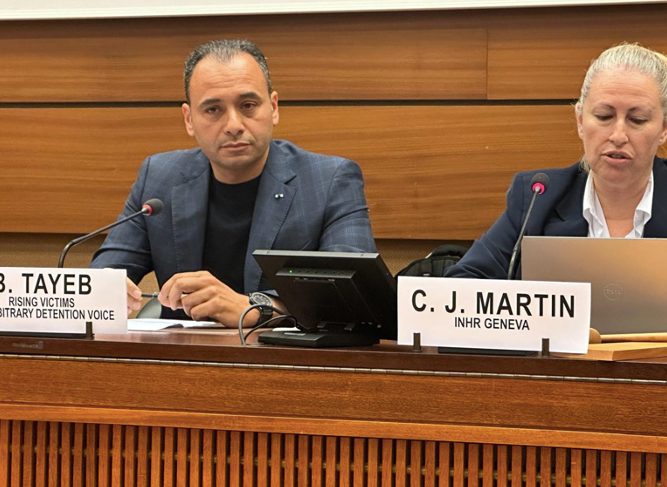A newly uncovered “highly confidential” document from Qatar’s secret services has provided critical evidence clearing French businessman Tayeb Benabderrahmane of the espionage accusations leveled against him. The report, sourced from a senior Qatari official, reveals that the charges were not only groundless but part of a broader political scheme aimed at discrediting Benabderrahmane due to his association with Libyan Marshal Khalifa Haftar, a figure hostile to Qatar.
Document Proves Innocence
The report, dated January 1, 2020, just days before Benabderrahmane’s arbitrary arrest, categorically states that he was unjustly targeted for his involvement in Libya rather than for any real espionage activities. His close ties to Marshal Khalifa Haftar, a prominent adversary of Qatar, were enough for Doha to construct a false narrative of espionage to undermine his credibility.
Details from the document indicate that Benabderrahmane had shared “sensitive information” with Ali Bin Samikh Al Marri, Qatar’s Labor Minister, in good faith, as part of a campaign against corruption. However, this cooperation was later twisted and used to frame him.
The report explicitly declares there was no legal foundation for Benabderrahmane’s arrest, proving that his detention was politically motivated and lacked any legitimate justification. The espionage accusations served only as a pretext to further Qatar’s political agenda.
Manipulation Behind the Scenes
Further investigation reveals that Qatari secret services used covert surveillance methods to monitor Benabderrahmane and gather information shared during his anti-corruption efforts. Notably, data implicating Nasser Al-Khelaifi in corruption scandals was later weaponized against him, fueling allegations of blackmail and espionage.

The report underscores that the true motivation for his arrest was to prevent damaging information from being leaked, particularly as Qatar prepared for the 2022 FIFA World Cup. This reinforces suspicions about the irregularities surrounding Qatar’s World Cup bid and exposes the depth of the political manipulation at play.
Detention, Torture, and Human Rights Abuses
Benabderrahmane’s wrongful detention lasted for 307 days, during which he endured psychological and physical torture. Documents reveal that Qatari authorities used extreme methods to force his cooperation, including threats against his family and inhumane treatment, actions condemned by multiple human rights groups.
A Pattern of Falsification
This newly disclosed report, along with other evidence, underscores that Benabderrahmane was wrongfully scapegoated in a larger political game. His innocence, long claimed by him, is now backed by this confidential Qatari report, further exposing how Doha manipulated facts to protect powerful figures, including Nasser Al-Khelaifi.
These findings also connect to previous revelations regarding Judge Ali Abdulla Al-Jusaiman’s involvement in the UN Committee on the Elimination of Racial Discrimination, where systemic falsification of judicial documents in Qatar was highlighted. The Benabderrahmane case, along with the Al-Jusaiman scandal, reveals a troubling pattern of judicial manipulation aimed at protecting Qatar’s internal power structures.
These revelations tarnish Qatar’s global image and call for immediate reform in its judicial processes.